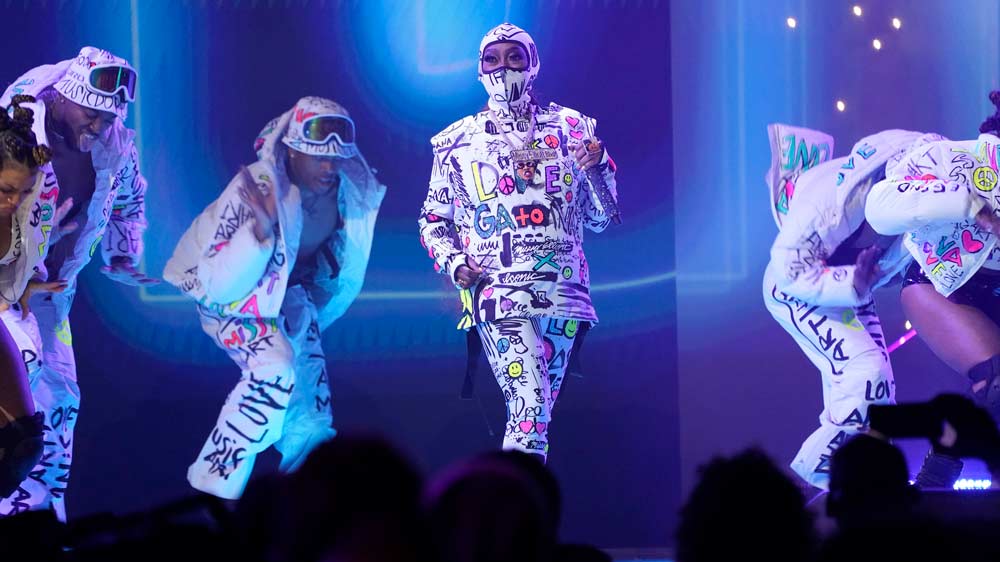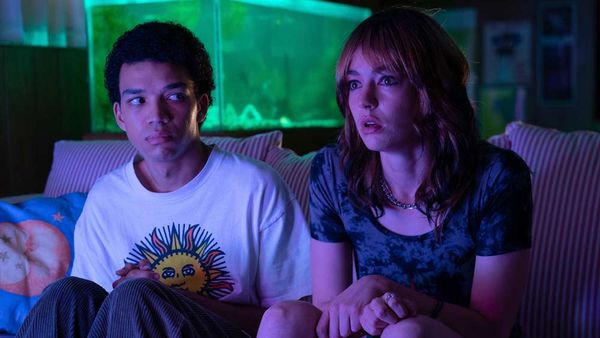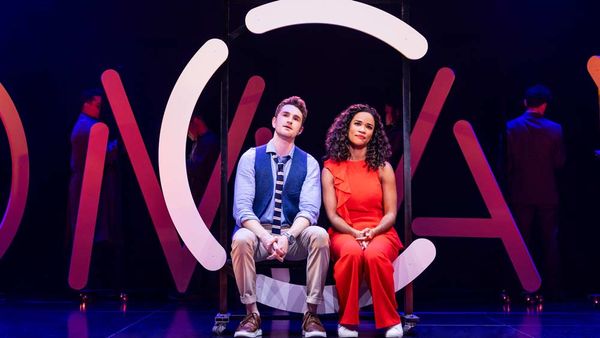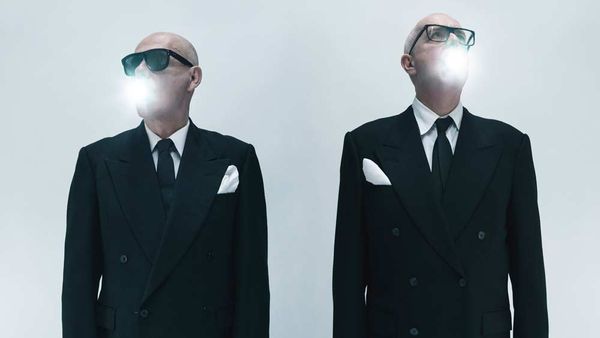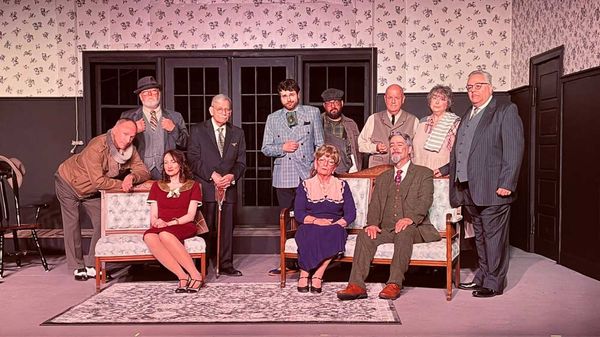
August 10, 2018
BlacKkKlansman
Kilian Melloy READ TIME: 4 MIN.
Spike Lee has not made a practice of subtlety, a characteristic that has largely served him well in his comedy but can which sometimes undercut his drama. Both trends are evident in BlacKkKlansman, a movie that's based on the book by Ron Stallworth and which is inspired by true events... some of which are still ongoing today.
In the early 1970s, Stallworth (played by John David Washington) becomes the first African-American police officer to serve with the force in Colorado Springs, Colorado. At first he's relegated to the records room, where his fellow cops make openly racist remarks; eventually, he's let out for an undercover mission involving Kwame Ture (Corey Hawkins), a charismatic African-American speaker who's in town at the invitation of a student group at the local college. The police chief (Robert John Burke), in his unexamined and reflexive way, is worried that radicals and revolutionaries might be lying in wait among the city's "good" African American populace.
Attending the speech, his hidden microphone monitored by a pair of white fellow cops - Flip Zimmerman (Adam Driver) and a fellow known only as Jimmy (Michael Buscemi) - Stallworth hears the logic and the justice in the speaker's words. What he doesn't hear is anything seriously dangerous to the ideals of justice or the rule of law. His next move - other than starting a relationship with Patrice (Laura Harrier), the leader of the student group - is to pick up the phone and call up the Colorado Springs chapter of the Ku Klux Klan. Posing as a white supremacist, he gains the interest of Walter (Ryan Eggold), who leads the local group. His action has a certain logic to it - if he's going to be asked to infiltrate black groups that might pose some sort of threat, then why wouldn't he want to do the same when it comes to white groups that espouse race hatred and terroristic violence? But there's also a certain impulsiveness to the idea, which has several drawbacks... the most obvious, of course, being that Stallworth is black.
This means that Zimmerman has to pose as Stallworth (who unthinkingly introduced himself over the phone to Walter using his real name). The two men have voices that are not dissimilar - deep and enunciated in what Stallworth refers to as "the King's English" - but they are not a perfect match; this does provoke a few questions at first, but the Klansmen, happy with their new recruit, soon look past this inconsistency. (Why Stallworth doesn't simply give the entire operation over to Zimmerman is never really explained, but the film is full of such ragged edges, serving all the better to indicate that the story has been ripped from real life.)
All the Klansmen look past it, that is, except for Felix (Jasper Paakkonnen), a psychopath who views Zimmerman with suspicion and peppers him with gibing little accusations about being a cop or being Jewish. (He's both, but the unflappable Adam Driver imbues Zimmerman with a preternatural calm.)
The operation is rife with comic potential, as well as the risk of imminent tragedy. Lee provides some hearty laughs (many of them at the expense of national Grand Wizard David Duke, played by Topher Grace), but also draws a web of suspense tighter and tighter until things reach a crescendo of plans gone wrong.
But Lee is also heavy handed in making his political points. These events are taking place in the 1970s but the script finds occasion to cast pointed aspersions at the current administration and check, in all but name, social justice movements like Black Lives Matter. It's not that those aspersions are unwarranted; it's not even the roots of racism's modern resurgence aren't deftly sketched as being planted decades deep in this nation's riven political soil. It's rather that Lee's messaging is so very overt and distracting, and this is a recurring motif throughout the film. When it's done in a controlled and creative way - the faces of a rapt audience appearing from the darkness as Kwame Fume talks about racist cops wreaking murderous violence on black and brown people, the messaging feel surgical in approach but broad in applicability; at other times, though, Lee's satire is stripped of cleverness as to feel like a jeremiad. That doesn't mean there's a lack of power: A scene in which two meetings play out in parallel (one of the local black students and one of the Klan, one group indulging in wild fantasies while the other hears a calm recitation of facts concerning a lynching; Harry Belafonte appears in this scene, and he is an indelible presence) has the brutal heft of a history lesson, but there's still a feel of general manipulation about it, climaxing with one groups shouting "White Power!" as the other cheers "Black Power!"
But the film survives the excesses of Lee's direction, and if it hammers its points home a little too forcibly that's understandable, given the film's more quietly made observations about the way in which black voices are simply not heard by a white power structure too terrified to pay attention to anything but the noise of its own fearful conjurings. A series of clips showing recent events - including neo-Nazis marching with torches in American streets and clashing with counter-protestors and a car being ploughed into peaceful marchers - serves as the final volley. Spike Lee's latest joint is well acted, well produced, and worth seeing - but make no mistake: It's out to harsh your buzz.
Kilian Melloy serves as EDGE Media Network's Associate Arts Editor and Staff Contributor. His professional memberships include the National Lesbian & Gay Journalists Association, the Boston Online Film Critics Association, The Gay and Lesbian Entertainment Critics Association, and the Boston Theater Critics Association's Elliot Norton Awards Committee.

